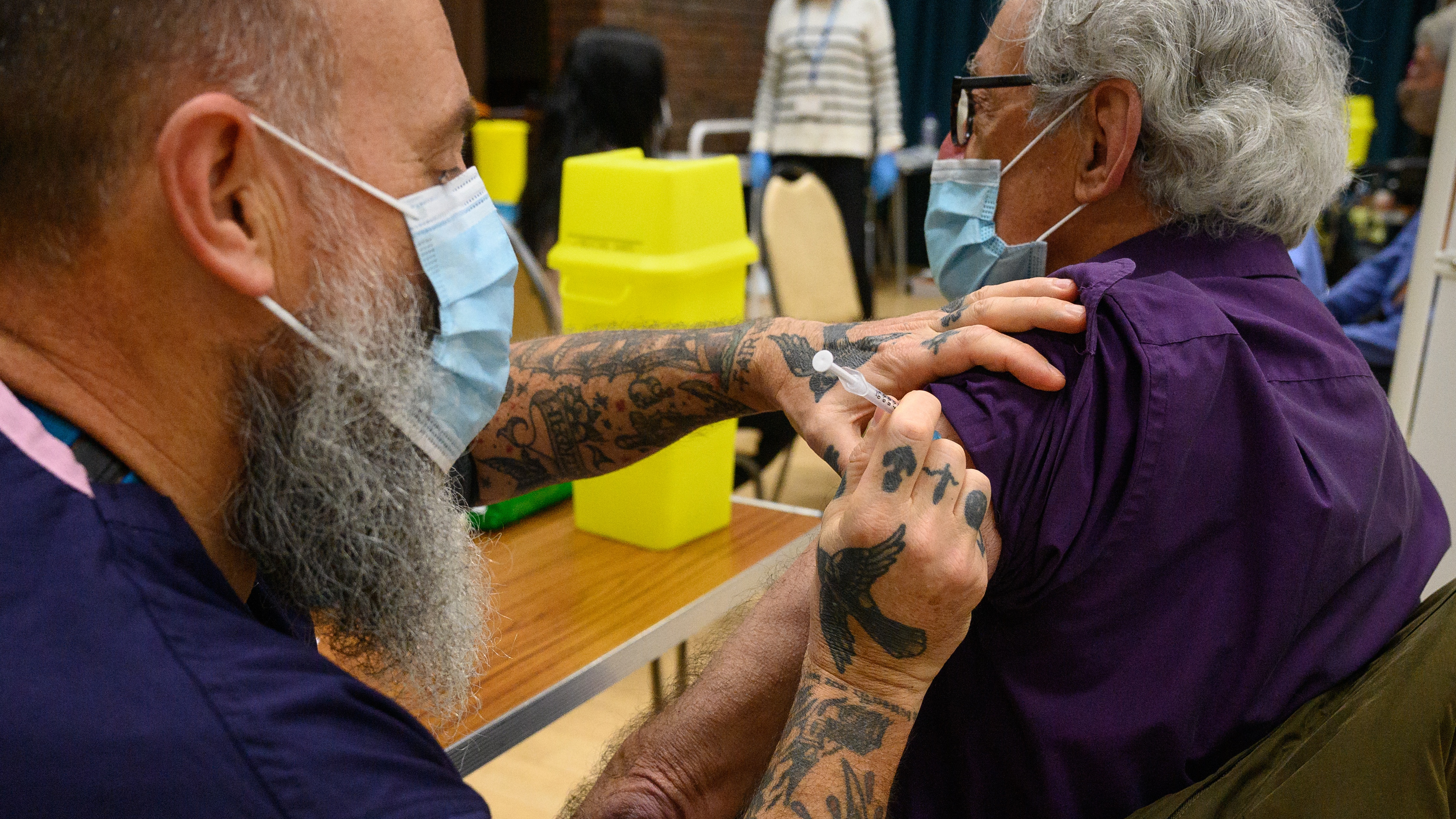‘Even with vaccines, we’ll still have to learn to live with Covid’
Your digest of analysis and commentary from the British and international press

- 1. Even with vaccines, we’ll still have to learn to live with Covid
- 2. Trying to divide white and ethnic minority working-class people helps no one
- 3. NHS heroes deserve real mental health help
- 4. Why the Capitol riot could speed up DC’s path to statehood
- 5. The trolling of Katie Price shows attitudes to working class women are still stuck in the 1980s
A free daily email with the biggest news stories of the day – and the best features from TheWeek.com
You are now subscribed
Your newsletter sign-up was successful
1. Even with vaccines, we’ll still have to learn to live with Covid
Tim Stanley in The Daily Telegraph
on a fork in the road
“Everybody accepts that at some point we’re going to have to ‘learn to live with the virus’: the travel ban is the first salvo in the debate over what that looks like. Do we become a more regulated society, like East Asia? Or do we rely heavily on regularly updated vaccines, while returning to liberty and accepting a certain number of Covid deaths each year, as we do for flu? The latter would require politicians to tell voters honestly what can’t be done, and the media to decide to give less attention to what has hitherto been the top item. Society will have to learn to turn a blind eye, as we normally do until mortality touches us personally, because if we dwelt upon the vulnerability of human beings for the rest of our lives, like we’ve done for the past year, we’d go completely insane. Death is ordinarily the spectre, not the entire feast.”
The Week
Escape your echo chamber. Get the facts behind the news, plus analysis from multiple perspectives.

Sign up for The Week's Free Newsletters
From our morning news briefing to a weekly Good News Newsletter, get the best of The Week delivered directly to your inbox.
From our morning news briefing to a weekly Good News Newsletter, get the best of The Week delivered directly to your inbox.
2. Trying to divide white and ethnic minority working-class people helps no one
Halima Begum in The Guardian
on divide and conquer
“With her speech and comments in the Commons, Truss seemed intent on creating a distraction from the government’s handling of Brexit and the coronavirus pandemic by whipping up a fabricated media storm about Black, Asian and minority ethnic ‘exceptionalism’. This would be the myth that the protections against discrimination afforded to people of colour and other protected groups, including women and disabled people, come at the cost of acknowledging and acting upon the inequalities experienced by the white working class (and in particular white working-class men).”
A free daily email with the biggest news stories of the day – and the best features from TheWeek.com
3. NHS heroes deserve real mental health help
Clare Foges in The Times
on falling morale
“Worse than the frustration at those who don’t get it is rage at those who deny it. Twitter conspiracy theorists state with certainty that this is no worse than any other winter crisis; breathtakingly dim ‘citizen journalists’ wander into hospitals to film empty corridors in outpatient units. It is hard to emphasise how upsetting this is to NHS staff, the implication being that they are lying about all those wild-eyed patients struggling for breath behind high-flow oxygen masks. Now that morale is through the floor many will feel, understandably, that they don’t want to give so much of themselves any more. A Royal College of Nursing survey in September showed that 36 per cent of respondents were considering quitting nursing in the next year.”
4. Why the Capitol riot could speed up DC’s path to statehood
Ian Ayres in the Los Angeles Times
on Trump’s legacy
“Approving a single additional state modestly moves our electoral college toward more popular representative government, but takes off the table this more radical, sudden elimination of the electoral college. Certainly, the rioters did not set out to help the District of Columbia gain statehood. Many may believe in states’ rights, just not for the overwhelmingly Democratic district and its residents, many of whom are Black. But the violent unlawfulness of the mob has provided Congress with vivid additional justification for action. A fitting, poetic irony will follow if their seditious antidemocratic acts help move our union toward a more representative democracy.”
5. The trolling of Katie Price shows attitudes to working class women are still stuck in the 1980s
Katie Edwards in The Independent
on everyday sexism
“The sustained negative tabloid coverage of Price and the online trolling to which she’s subjected tells us more about broader cultural attitudes to working-class women than it does about her as a person. We don’t know Katie Price as a person, only as a media persona on which the public projects their anxieties, prejudices and desires. Attitudes to her reflect cultural preoccupations about deserving and undeserving women: which women warrant our support and compassion - based on their respectability - and which do not. Price has many accomplishments to her name, including disability rights campaigner, author, designer, entrepreneur and mother of five, but none of them prevent her from being publicly derided and debased on a regular basis, despite clear and frequent signals that she is fragile and distressed. It doesn’t seem to matter, though. Public and media distaste and disdain for Price remain alongside a prurient fascination with her body, behaviour and (repeated) downfall.”